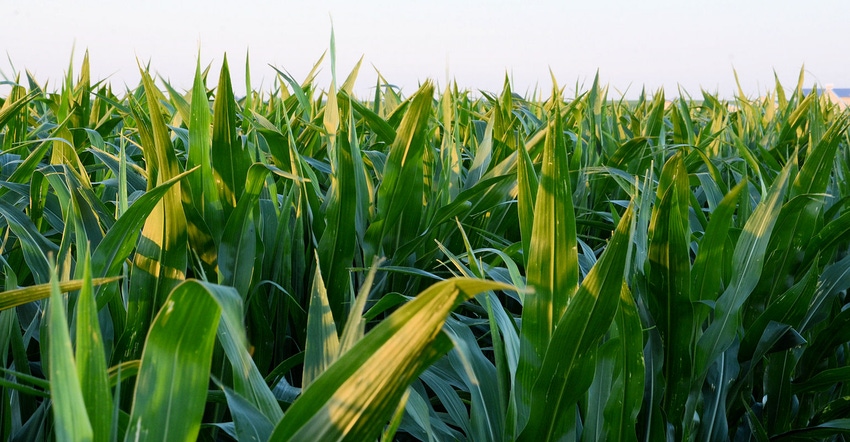September 24, 2019

In agriculture, startup companies are appearing almost daily. A few years ago, Anuvia came on stream with a new fertilizer product made from ag wastes using a new technology. Long focused on the commercial fertilizer market with its non-crop specific slow-release product, the company has grown to cover 1 million acres with its fertilizer. That’s about to grow a lot more with news that Anuvia is expanding production by leasing space at a Mosaic Company facility in Plant City, Fla.
“We spent over a little over a year working to identify key areas that made the most sense to us,” says Amy Yoder, CEO, Anuvia. “We were not going with a pure greenfield approach at this stage of our life, we wanted to repurpose and reutilize an existing facility.”
The key was a site with infrastructure in place, which would take less time and capital to build out. She adds that the deal was completed in nine months, which is fast for this industry. By building out of an existing space, Anuvia significantly lowers the investment in production expansion and gets to market quicker with higher capacity. What else does the new Florida expansion location offer?
“We were looking for a site that had good incoming logistics for raw materials,” says Hugh MacGillivray, executive vice president, Anuvia. “And it had to have good outgoing logistics to serve the market.” The Plant City space filled those two requirements.
The deal with Mosaic involves a long-term strategic relationship, which includes Mosaic investing in the startup. “They have made an equity investment in the company, but it is not an ownership share, it is a minority investment,” explains Yoder. She adds that the two companies are also discussing other opportunities that make sense for the future as Anuvia expands.
The Mosaic Company facility is a shuttered phosphate production operation that will be repurposed to boost Anuvia’s production capacity as high as 1.2 million tons. Anuvia’s current Zellwood, Fla., facility built as a proof-of-concept plant three years ago produces 80,000 tons now. The aim is to be operational in the Plant City facility by the second quarter of 2020.
“We’re basically tapped out on production at this time,” MacGillivray says. “The Zellwood plant was the smallest plant that could be built that could teach us how to scale up this technology.” He adds that moving into the higher-capacity setting will be built with learnings from the Zellwood facility; management is ready to scale up.
For Plant City, the new business in the existing space as it ramps up to full production will bring 135 new jobs with an average salary of $70,000. “The Mosaic facility had not been closed for very long so there is a lot of good expertise in the area,” Yoder says. “We can bring it up to speed quickly and the infrastructure is still in place. For us it’s a beneficial location.”
The product and the tech
Farm Progress has covered the Anuvia technology since the Zellwood facility went online in 2016. The product produced in the facility can be made from a wide range of feedstocks including material that’s left after methane is removed from manure, food wastes and other ag-waste materials.
The resulting product is a slow-release granular material that works well with existing fertilizer delivery systems. This startup is essentially making a plug and play fertilizer you can add to granular product you’re already applying. The slow-release nature of the materials also means it’s available to plants and doesn’t leave the farm as runoff. Add in the feedstock uses wastes and the material even has a friendly carbon footprint.
“We’ll be using multisource feedstock in the new facility,” MacGillivray says. “We’ll have a variety of materials from Smithfield, peanut hulls, food waste, municipal wastewater organics, a variety of organics. We want to be the first port of call for ag waste organics to use in that facility.”
He explains that in this way the Anuvia process creates a full-circle ag product turning waste into fertilizer that can go back out to produce more crops. “That’s a big part of our vision,” he adds.
Yoder explains that the next steps for the company are the commercial steps, beyond those startup issues. “We’re entering a market space where there has been no new entrant for a long time,” she says. “We need to make the market aware of who we are, and what we do. And we have to get our product to a wider reach than in the past when we focused mainly on the Southeast. We’re working to expand our distribution network through our partners, and of course, get our message to the farm.”
Anuvia products include SymTrx for agriculture and GreenTRX for the turf industry. There’s also Anugreen for the consumer residential lawn market.
In agriculture, SymTrx has shown through independent research it can reduce greenhouse gas production by up to 32% compared to conventional fertilizers if properly applied. And in production, farmers are consistently seeing a yield increase, Yoder says.
The SymTrx product is a 16-1-0-20S granular that be used in combination with conventional fertilizers, providing a slow-release product with added sulfur. You can learn more about these products by visiting anuviaplantnutrients.com.
About the Author(s)
You May Also Like






